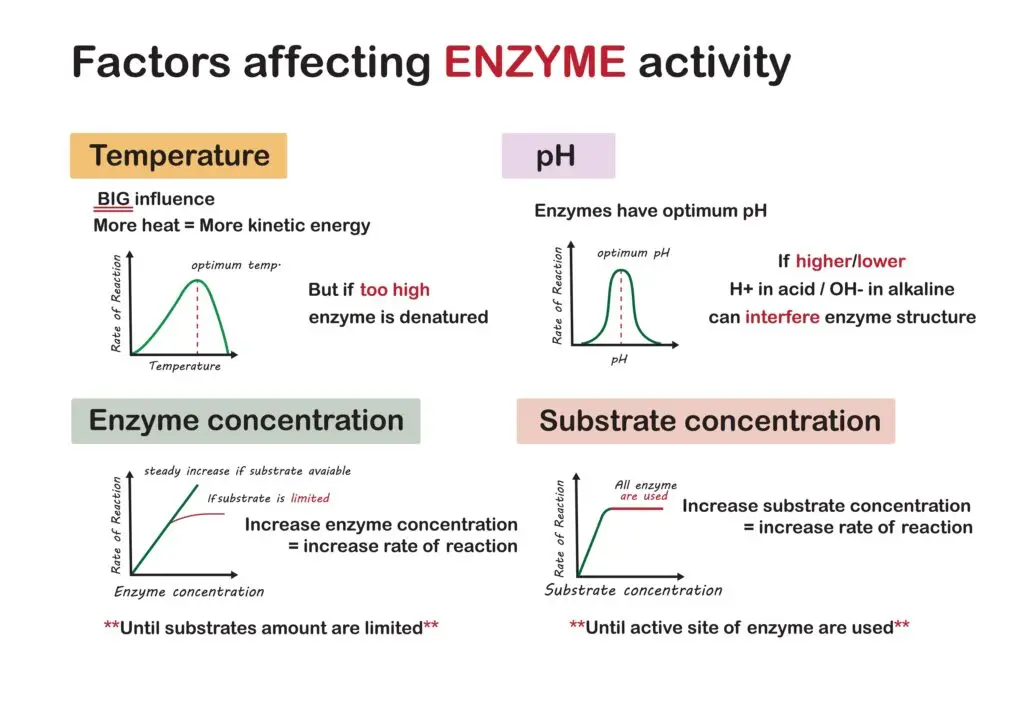Enzyme
Definition of Enzyme
An enzyme is a protein that acts as a catalyst, speeding up chemical reactions within the cell without being consumed in the process. Enzymes are vital for various cellular processes, such as digestion, energy production, and DNA replication.
The Cell’s Catalyst
An enzyme is a protein that speeds up chemical reactions in the cell by lowering the activation energy required for those reactions to occur. Enzymes act as biological catalysts, ensuring that vital processes like digestion, energy production, and DNA replication happen quickly and efficiently. Each enzyme is specific to a particular reaction, binding to its target molecule, called a substrate, to produce a specific product.
How Enzymes Work
Enzymes work by binding to their substrate at a specific region called the active site. This binding forms an enzyme-substrate complex, which stabilizes the chemical reaction and allows it to proceed faster. After the reaction, the enzyme releases the product and is ready to catalyze another reaction. For example, the enzyme amylase breaks down starch into glucose, making it easier for the body to absorb and use as energy.
Importance for Life
Enzymes are essential for life because they enable cells to perform reactions at the speed required for survival. Without enzymes, reactions would occur too slowly to sustain life. They regulate processes like metabolism, cell division, and energy production. For example, the enzyme ATP synthase helps produce ATP, the energy currency of the cell. Enzymes ensure cells function efficiently and adapt to changes in their environment.
Role in Digestion
Enzymes play a critical role in breaking down food into nutrients the body can absorb. For example, proteases break down proteins into amino acids, lipases digest fats into fatty acids, and carbohydrases convert carbohydrates into sugars. These digestive enzymes ensure that food is broken down efficiently, providing the energy and building blocks needed for cellular function.
Enzymes and Disease
Defective or missing enzymes can lead to metabolic disorders. For example, in lactose intolerance, the enzyme lactase is absent or inactive, preventing the breakdown of lactose in dairy products. Some diseases, like phenylketonuria (PKU), result from a faulty enzyme that fails to process specific molecules, leading to harmful buildups. Understanding enzymes allows scientists to develop treatments, such as enzyme replacement therapy.
Role in Medicine and Industry
Enzymes have a wide range of applications in medicine and industry. For example, enzymes are used in blood tests to diagnose diseases by detecting specific chemical reactions. In biotechnology, enzymes are used to produce biofuels, clean up waste, and manufacture products like detergents and food additives. Enzymes are also central to drug development, as they are often the targets of therapies designed to enhance or block specific reactions.
